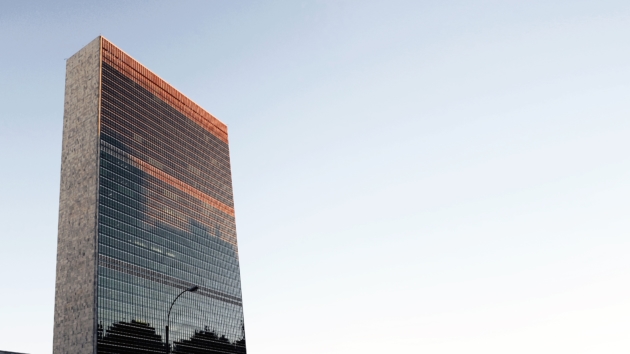UN Court Siding With Iran Reveals More D.C. Cleanup Is Needed
The United States was handed yet another snub by the United Nations last week when its International Court of Justice (ICJ) ordered it to undo sanctions against Iran that would interfere with the importation of humanitarian goods and services to that country.
Specifically, the court ordered the United States to remove those sanctions dealing with “medicine and medical devices, food and agricultural commodities and spare parts and equipment necessary to ensure the safety of civil aviation.”
The United States immediately cried foul with John Bolton, the United States National Security Advisor, pointing out that the ICJ had allowed itself to be used “as a forum for propaganda” by Iran.
But here’s the head-smacking part: There is still a 63-year-old treaty in effect between the nations on which the court based its ruling.
Iran contended that the United States’ actions of reinstating sanctions in May were in breach of the Treaty of Amity signed in 1955 between President Dwight D. Eisenhower and King Mohammad Reza Shah. This treaty included an arbitration agreement of sorts that would make the ICJ the arbiter of any disputes between the two nations.
But the sanctions dispute was not the only contention made by Iran before the ICJ. The international court also argued that the United States had acted illegally in unilaterally withdrawing from the Iran nuclear accord, a charge the ICJ rejected.
However, the ICJ sided unanimously with Iran in its contentions regarding sanctions against products and services necessary for humanitarian aid. The ruling also declared that the international community viewed the reimposition of sanctions by the United States as illegal.
United States Secretary of State Mike Pompeo responded forcefully by immediately withdrawing the United States from the Treaty and activating its one-year termination clause under Article XXIII. In the meantime, Bolton contended that the Treaty could not be considered in force in light of Iran’s hostile behavior towards the United States and the community of nations.
“Iran is a rogue regime,” he said. “It has been a threat throughout the Middle East, not only for its nuclear weapons and ballistic missile programs, but it’s (sic) acted for several decades as the central banker for international terrorism.”
Of course, Bolton is correct in his assertion.
Article I of the Treaty calls for “a firm and enduring peace and sincere friendship between the United States of America and Iran,” a provision that was permanently and irreversibly violated by Iran with the swarming of the American Embassy and the taking of American hostages for 444 days in 1979. Among others, that act of hostility violated numerous other provisions of the Treaty designed to guarantee the rights and safety of the nationals and companies in Iran. Additionally, Iran’s numerous actions of hostility towards the United States and its regional neighbors have cut to shreds any semblance of a treaty.
Regardless, because the Treaty still exists on paper, the ICJ decided to honor it, thus giving the Iranian regime ammunition with which to ironically call the United States “an outlaw regime.”
In light of the irreparable deterioration of relations between the two countries and the widespread disregard of the provisions of the Treaty, it is amazing that the United States did not withdraw years ago, an observation that did not escape John Bolton.
“Given this history and Iran’s abuse of the ICJ, we will commence a review of all international agreements that may still expose the United States to purported binding jurisdiction and dispute resolution in the International Court of Justice.”
It’s past time we did.
EDITORS NOTE: This Revolutionary Act column is republished with permission. The featured photo is by Daryan Shamkhali on Unsplash.



Leave a Reply
Want to join the discussion?Feel free to contribute!